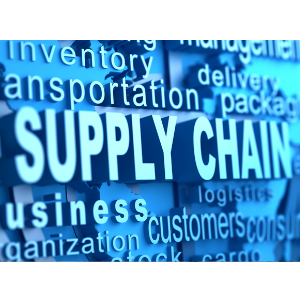Venkatachalam Anbumozhi, senior research fellow at the Economic Research Institute for ASEAN and East Asia (ERIA), in a recent article said Asia, particularly ASEAN, should not join the tariff wars but should focus instead on meaningful domestic reform, strengthening regional cooperation, and investing in resilient supply chains.
At first glance, imposing tariffs may seem like an effective and patriotic way to protect domestic industries and jobs, admitted Venkatachalam.
“But in reality, such protection often leads to complacency. Industries shielded by tariffs lose incentives to innovate and adapt. Worse still, tariffs almost inevitably provoke retaliation, escalating into trade wars that hurt everyone. Artificially inflated prices due to import duties prop up inefficiency. Eventually, consumer demand declines, markets shrink, businesses fail, and jobs are lost on all sides,” he warned.
In a bold attempt to reassert American economic dominance, US President Donald Trump announced a new wave of punitive tariffs on imports from virtually all trading partners. Under this plan, China faces a 54% tariff, followed by Cambodia (49%), Vietnam (46%), Myanmar (45%), Sri Lanka (44%), Bangladesh (37%), Thailand (36%), Indonesia and Taiwan (32%), India (29%), South Korea (25%), and Japan and Malaysia (24%).
The Philippines’ rate is set at a lower 17% while only Singapore faces a baseline 10% tariff rate.
The higher tariffs, announced on April 2, 2025 via Trump’s Truth Social account, took effect on April 9.
Venkatachalam observed how many governments have instinctively responded with reciprocal tariffs, including China, the EU, Canada, and Mexico, but said retaliation may not be the best or only viable response.
While the impulse to retaliate is natural and sometimes politically necessary, it may not be the smartest move, especially for economies deeply integrated into global supply chains, he pointed out, adding that mutual escalation might only deepen economic harm.
“This is not to say that countries like Cambodia or Vietnam are powerless vis-a-vis the US. They have other tools beyond trade policy. For example, governments could tax the profits of US multinationals or introduce environmental levies on new US investments that fail to meet ESG (Environmental, Social, and Governance) standards. Such strategies not only deter poor investment practices but also generate domestic revenue and promote sustainable development,” the economist continued.
“Still, not every country can shield itself from the fallout. Given the heavy concentration of global supply chains in Asia—particularly in electronics and automobiles—disruptions are likely to have a significant impact across ASEAN and East Asia. That said, tariffs disproportionately affect small businesses and consumers more than they do governments or large firms. So, retaliatory trade policies are not always the optimal response.”
Venkatachalam proposed remaining calm and focusing on strengthening regional integration and economic resilience “since the vast majority of global trade—87%—does not depend on the US.”
“Rather than entering into a tariff war, ASEAN and Asian economies should prioritise reducing internal barriers to trade, enhancing regional cooperation, and investing in building resilient supply chains,” he said. “The COVID-19 pandemic proved that Asian firms adapt quickly to shocks—often faster than governments. Now is the time to deepen ASEAN and East Asian economic integration—not only in goods but also in services and digital trade.”
The researcher urged policymakers to “focus less on retaliation and more on reforms that improve the business environment, logistics, and cross-border infrastructure.”
Governments should support next-generation reforms—such as supply chain resilience, green logistics, and digital public infrastructure—while companies must rethink their strategies to become more agile and sustainable. Embracing low-carbon, circular models of production can not only reduce manufacturing costs but also open new market opportunities, he stated.
“In the face of US protectionism, ASEAN and Asia must keep their cool. The US is now a prisoner of its own policies. A global trade war in the 1930s intensified the Great Depression, and history need not repeat itself. Investor confidence is fragile, and the best way forward is steady, sensible reform—not retaliation,” Venkatachalam said.
He called on Asian economies to stay calm as a way to avoid the worst of the damage. “The burden of these tariffs will fall most heavily on the US economy. For everyone else, the smartest move is to carry on with meaningful domestic reform, strengthen regional ties, and let the numbers speak for themselves.
April 21, 2025













